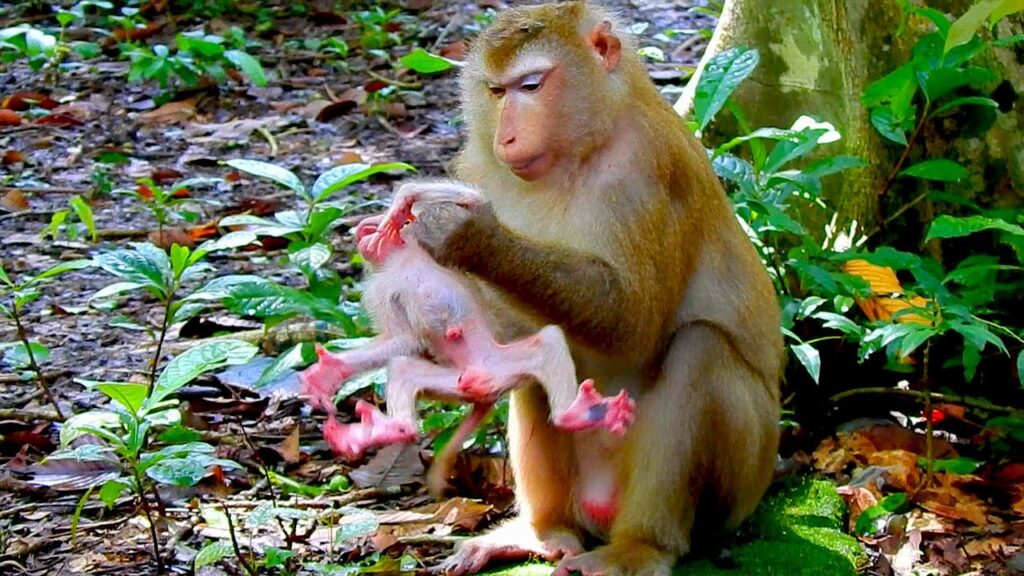
In the peaceful corner of the forest, where the sunlight filters gently through the leaves, a touching moment unfolds. Luna, the young mother lynx, has just given birth to a precious cub. With his tiny ears twitching and soft fur still slightly damp, the newborn lynx whimpers gently, still adjusting to the new world. Named Leo by the caretakers who quietly observe from a distance, the little one is already showing signs of attachment to his mama.
But today, Luna seems restless. Perhaps it’s fatigue or the pressure of motherhood settling in. As Leo nestles close, hoping for warmth and milk, Luna gently picks him up by the scruff and sets him down on the cool earth. His soft mewls quickly turn into high-pitched cries—adorable yet heart-tugging. He stretches his little paws, crawling toward her belly instinctively, searching for the comfort of feeding. But Luna steps away, grooming herself quietly, as though unaware of her baby’s plea.
The sight is both sweet and slightly heartbreaking. Little Leo, barely strong enough to stand, cries with determination. His eyes, still adjusting to the light, blink up at his mama as if asking, “Why, Mama?”
It’s a brief but emotional moment—a reminder of how delicate early motherhood can be in the wild. Luna, though inexperienced, is learning. And Leo, with his soft cries echoing under the trees, is learning too—to be patient, to be strong, and to hold on.
Moments later, Luna finally turns back. She softly nudges Leo, draws him close, and allows him to nurse. His cries fade into soft suckles. The forest is calm again.
For now, all is well in their quiet corner of nature.


